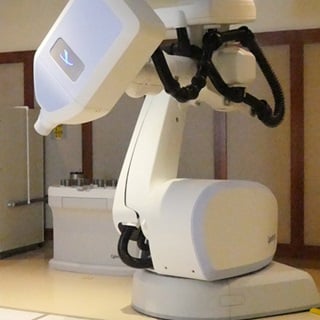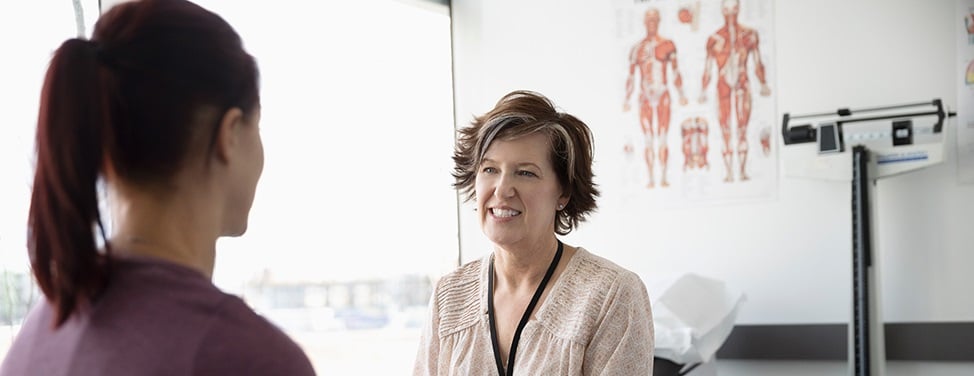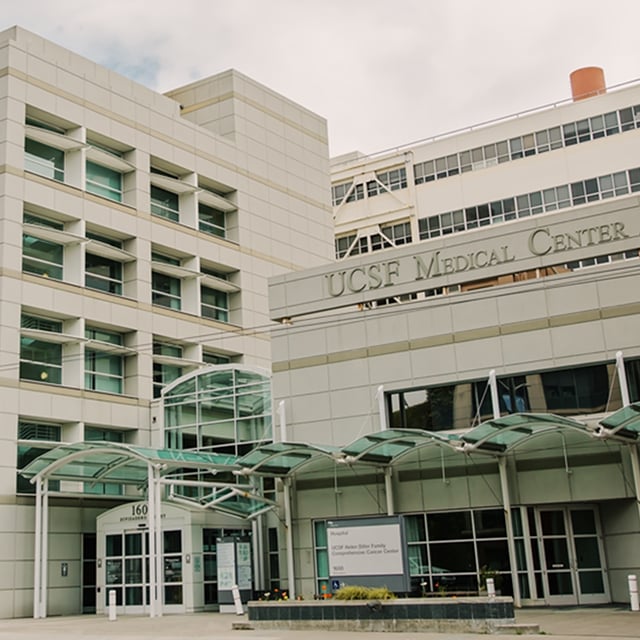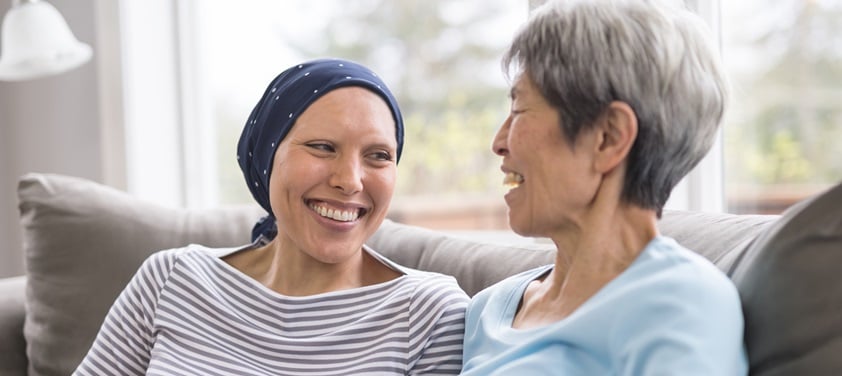Spinal Cord Tumor

Overview
Early diagnosis can be an important factor in the outcome of tumors in the spinal cord. Primary spinal cord tumors — tumors that originate in the spine rather than spread to the spine from elsewhere in the body — are usually benign. They are so rare that they account for only a half of one percent of all newly diagnosed tumors. Malignant primary tumors of the spinal cord are even less common.
Most spinal cord cancers are metastatic or secondary cancers, meaning they arise from cancers that have spread to the spinal cord. Cancers that may spread to the spine include lung, breast, prostate, head and neck, gynecologic, gastrointestinal, thyroid, melanoma, renal cell carcinoma and others.
Our approach to spinal cord tumor
UCSF is home to one of the largest centers for spinal tumor care in the U.S., treating more than 10,000 patients each year. Our team of specialists includes neurosurgeons, orthopedic surgeons, oncologists and radiation oncologists. This breadth of expertise helps us deliver the best possible outcomes for even the most difficult cases. We offer minimally invasive surgery as well as noninvasive radiosurgery, which delivers high doses of radiation directly to tumors without damaging surrounding healthy tissue. We also provide opportunities to participate in clinical trials of possible new treatments.
Awards & recognition
-

Among the top hospitals in the nation
-

Best in California and No. 7 in the nation for cancer care
-

Best in the West and No. 2 in the nation for neurology & neurosurgery
-

Best in Northern California and No. 6 in the nation for orthopedic care
Signs & symptoms
Tumors within the spinal cord generally cause detectable symptoms, while spinal tumors outside of the cord may develop for some time before symptoms emerge. Common symptoms include:
- Back pain
- Cold sensation in the legs, feet or hands
- Loss of bowel control
- Loss of sensation, particularly in the legs
- Muscle weakness and difficulty walking
- Muscle contractions or spasms
Diagnosis
The first test to diagnose brain and spinal column tumors is a neurological examination. Special imaging techniques such as computerized tomography (CT), magnetic resonance imaging (MRI) and positron emission tomography (PET) are also performed.
Laboratory tests include the electroencephalogram (EEG) and the spinal tap. A biopsy, a surgical procedure in which a sample of tissue is taken from a suspected tumor, helps doctors diagnose the type of tumor.
Treatments
Radiation therapy
Most patients with primary spinal cord tumors will not require radiation therapy. Radiation, however, is used to treat spinal cord compression due to metastatic cancer or cancer that has spread from other locations. Other targets of radiation include some primary cancers of the spine and more rarely, benign or low-grade spinal cord tumors that cannot be completely removed surgically.
The spinal cord is even more sensitive to the effects of radiation than the brain. Our radiation oncologists work carefully to minimize the risk of radiation-induced damage to normal spinal tissue since it can be progressive and irreversible. The thoracic spinal cord segments, or those located near the chest where half of all spinal tumors occur, are the most sensitive to the effects of radiation.
Radiosurgery with an advanced device called the CyberKnife may be an option for some patients. The CyberKnife is a painless, non-invasive threatment that delivers high doses of precisely targeted radiation to destroy tumors or lesions. Radiosurgery minimizes radiation exposure to healthy tissue surrounding the tumor.
The CyberKnife uses a robotic arm to deliver highly focused beams of radiation. The flexibility of the robotic arm makes it possible to treat areas of the body, such as the spine and spinal cord, that cannot be treated by other radiosurgery techniques.
Chemotherapy
Chemotherapy, similar to that used for brain tumors, may be recommended in adults for spinal gliomas that progress after surgery and radiation.
Chemotherapy is the use of drugs to kill cancer cells. Your doctor may use just one drug or a combination, usually giving the drugs by mouth or by injection into a blood vessel or muscle. Intrathecal chemotherapy involves injecting the drugs into the cerebrospinal fluid.
Chemotherapy is usually given in cycles: a treatment period followed by a recovery period, then another treatment period, and so on. Patients often do not need to stay in the hospital for treatment. Most drugs can be given in the doctor's office or the outpatient clinic. However, depending on the drugs used, the way they are given and the patient's general health, a short hospital stay may be necessary.
Surgery
While surgery is increasingly recommended for benign and malignant primary spinal cord tumors, the role of surgery in spinal metastasis, or cancer that has spread to the spine, is controversial. Recent developments in imaging as well as new surgical tools and techniques, such as ultrasonic aspirators and lasers, have significantly expanded the role of surgery as an intervention.
For metastatic tumors with spinal cord compression, some neurosurgeons may perform surgery in selected patients to relieve pressure and pain, reconstruct or stabilize the spine, preserve mobility and bowel and bladder function, and to maximize quality of life. Some doctors may only recommend surgery for patients with a single metastatic tumor and no evidence of cancer growing at another site.
UCSF Health medical specialists have reviewed this information. It is for educational purposes only and is not intended to replace the advice of your doctor or other health care provider. We encourage you to discuss any questions or concerns you may have with your provider.
Recommended reading
Related programs
Where to get care (5)
Related clinics (5)
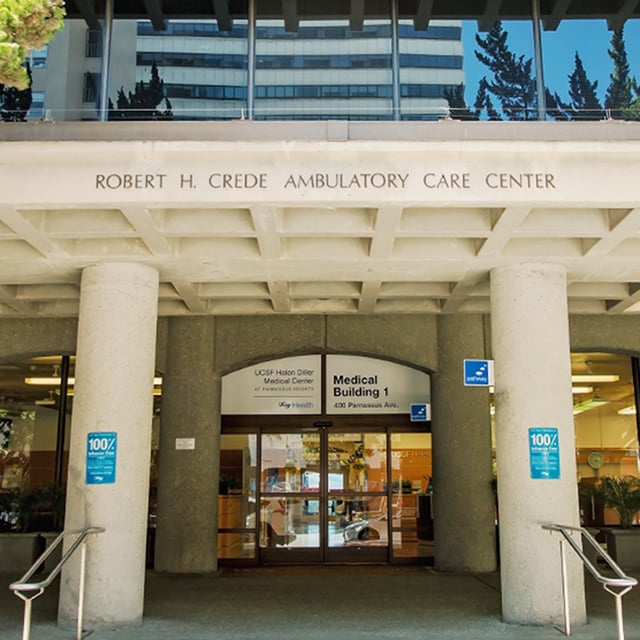
Adolescent and Young Adult Neuro-Oncology Clinic
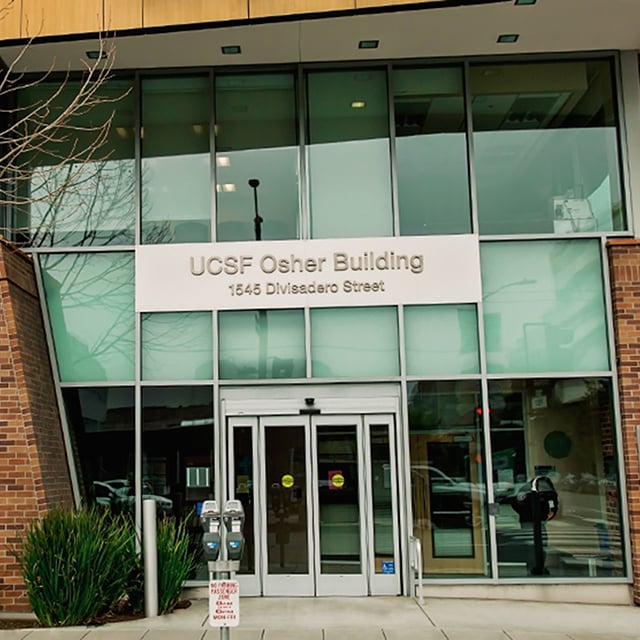
Osher Center for Integrative Health
 2
2






